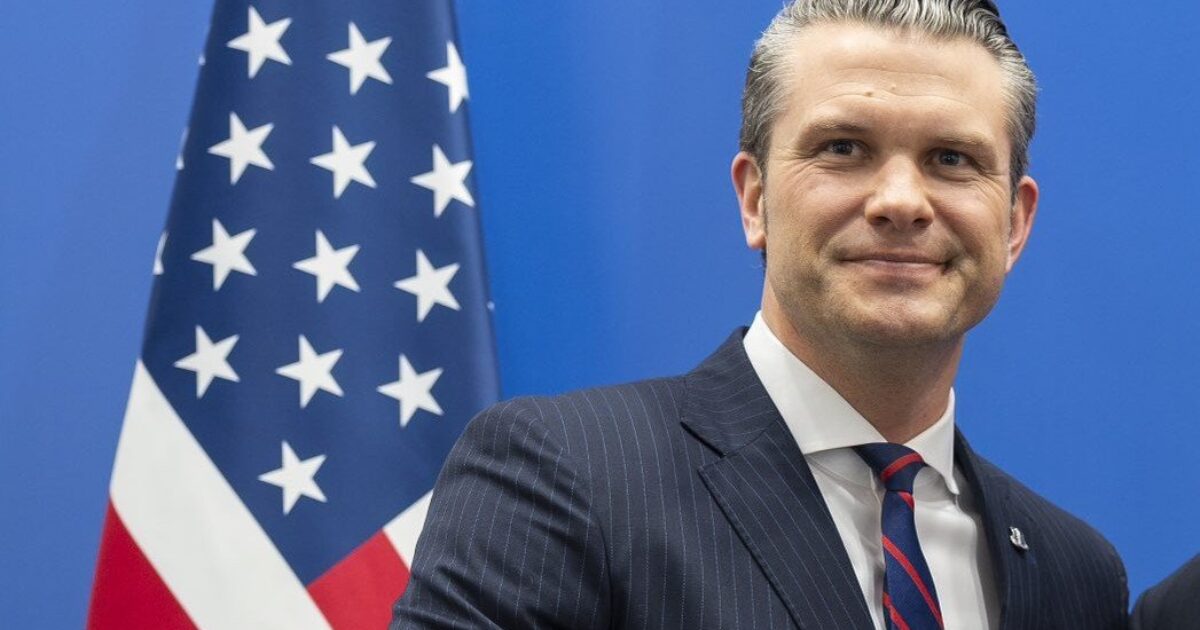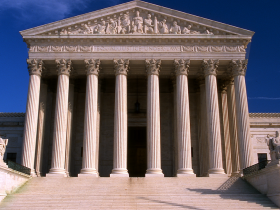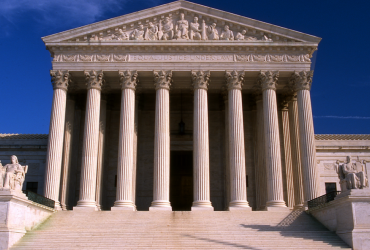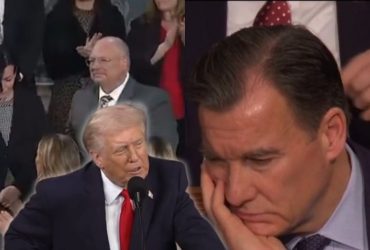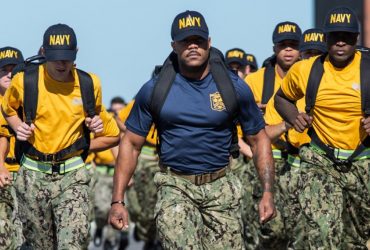Image: Wikimedia Commons (U.S. Department of Defense, February 2025)
Dozens of service members currently serving in the military have offered their thoughts on how to hold accountable those military leaders who violated the law by implementing and enforcing the COVID-19 shot.
A startling report released by The Gateway Pundit recently highlighted the findings of a small, independent survey carried out by J.M. Phelps. Sadly, 89 percent of over sixty respondents stated that they would not advise their children, family members, or friends to join the military.
As previously reported, 80 percent attribute their reason to “the lack of accountability for the implementation and enforcement of the 2021 military shot mandate.”
Out of 66 participants in the fall 2025 survey, 64 respondents, or 97 percent, believe that leaders within the Department of Defense should be held responsible for how the mandate was put into action and enforced in August 2021.
While the survey only represents a small fraction of a much larger population, 63 out of the 66 participants, or 95 percent, expressed that accountability is essential for them to restore their trust in the military. This perspective has been echoed by hundreds of service members and veterans in discussions with the author over the past four years. And as of now, no one has faced consequences.
In the latest findings presented below, individuals actively serving in the various branches of the military also shared their perspectives on what accountability would look like to them. Each emphasized that his or her views to not reflect those of the War Department or their respective branches of the military.
To summarize, here’s what the participants in the survey conveyed about the accountability of military leaders responsible for the implementation and enforcement of the shot:
Subjectively, most survey participants indicated that their violations of the law should be categorized into different levels, including low-level, moderate-level, and severe-level violations. Although these categories would need to be clearly defined, “low-level” infractions would require mandatory training on the unlawful components of the mandate, with no repercussions for the violator’s career.
In the case of what would be considered “moderate” infractions, those who violated the law should encounter negative administrative actions that may affect their career. Lastly, “severe” violations would warrant Uniform Code of Military Justice (UCMJ) action, which could lead to the end of their career through courts-martial, dishonorable discharges, and more, including complete forfeiture of rank, benefits, and pension.
Numerous individuals advocated for General Officer Memorandums of Reprimand (GOMOR) to be included in their records. Some even proposed prohibiting federal service and future political appointments. One person even recommended that leaders face treason charges and time in jail.
Participants in the survey also advocated for public apologies to the American people through testimonies presented to Congress that would be included in the congressional record.
One respondent expressed concern that any form of punishment might be perceived as “authoritarian” by those on the Left. This same service member proposed offering “ribbons, medals, or awards [for] the brave few” who opposed the illegal enforcement of the shot mandate.
The loss of careers, the loss of promotions, the strains on marriages, and so much more have left many service members feeling resentful. Given the incredible challenges they faced in opposing an “unlawful as implemented” shot mandate, their anger may be justified.
Is there a middle ground that can be reached between those adversely affected and the Department of War? That’s a decision for War Secretary Pete Hegseth and his department to make.
Here are a few additional points for the Department of War to consider:
Out of 66 participants in the survey, 59—equating to 89 percent—reported knowing someone who has been separated or compelled to leave military service due to the COVID-19 shot mandate. Additionally, 61 individuals, or 92 percent, indicated that they know someone who has suffered physical harm from the shot. Furthermore, eight of the 66 participants reported experiencing physical harm themselves.
Is it any wonder why they may never cease seeking accountability? War Secretary Hegseth, what’s holding you back? That’s the question on everyone’s mind.
The post What Does Accountability Look Like for Service Members Affected by the COVID-19 Shot ? appeared first on The Gateway Pundit.

